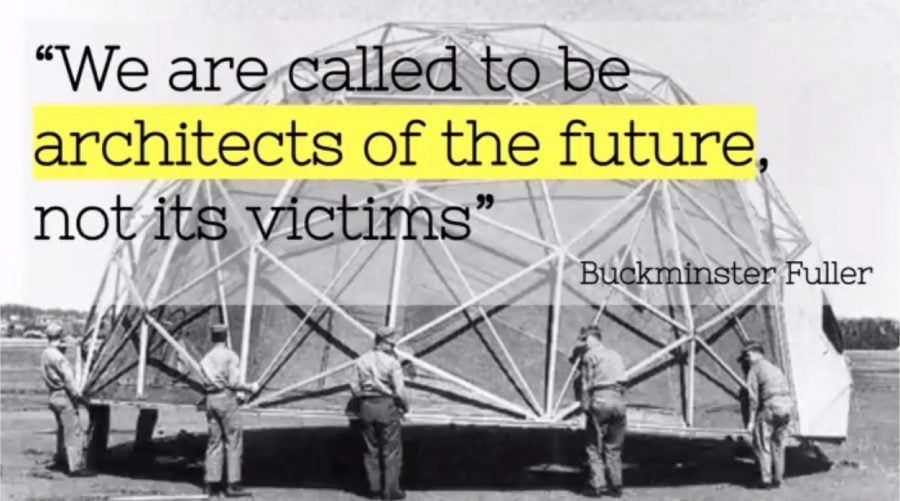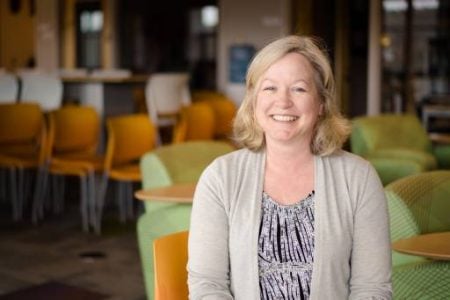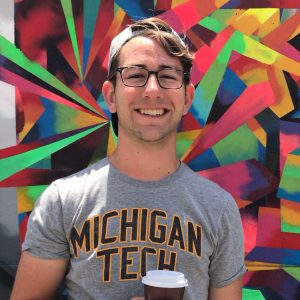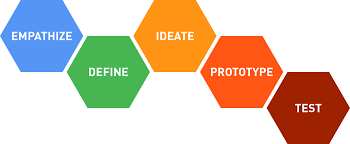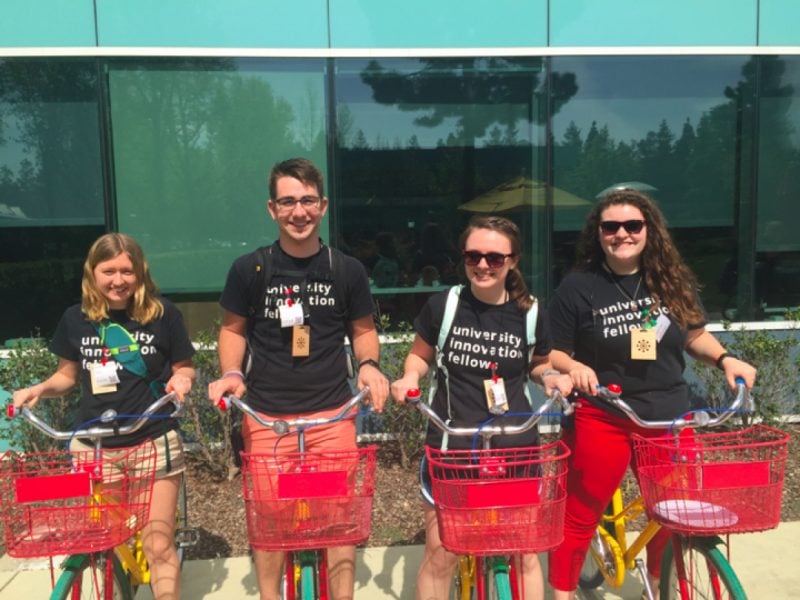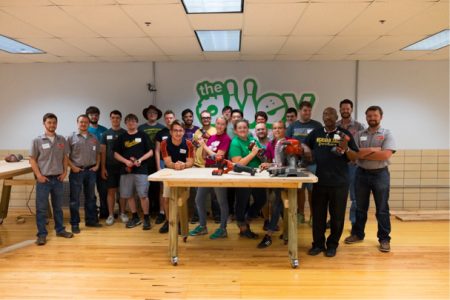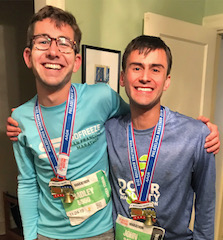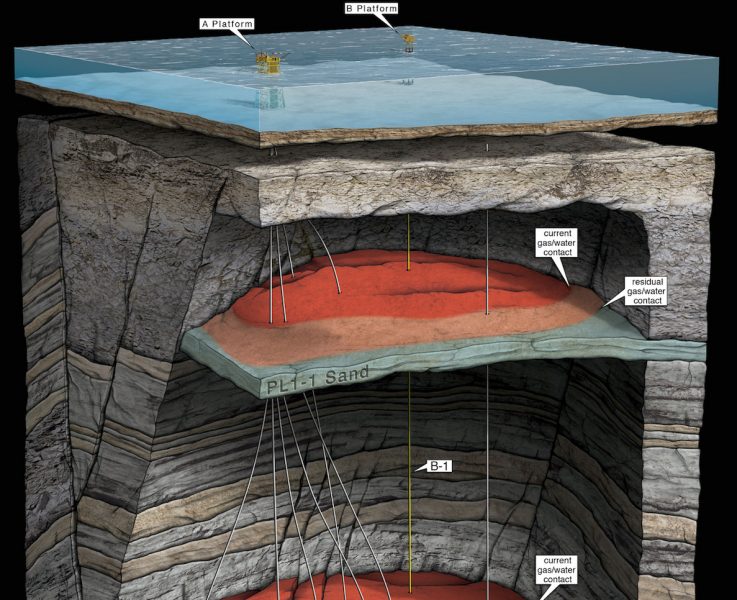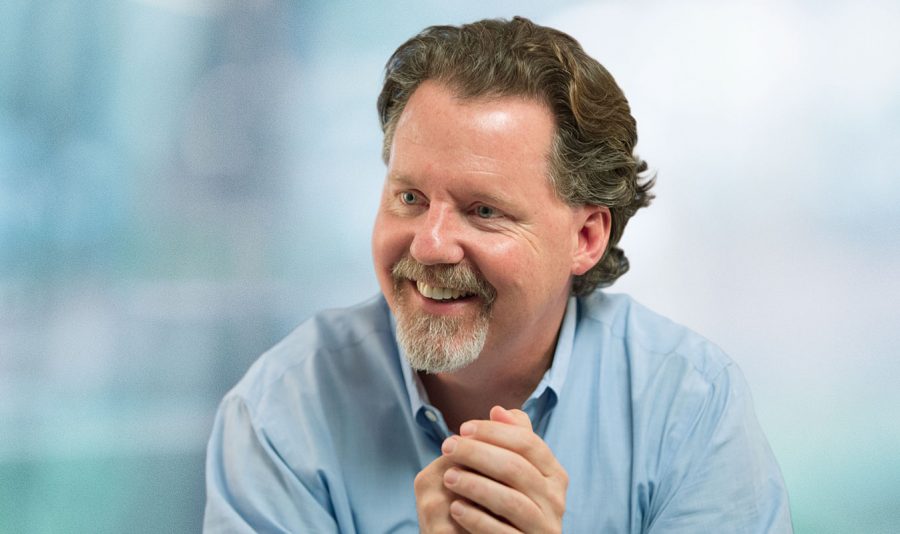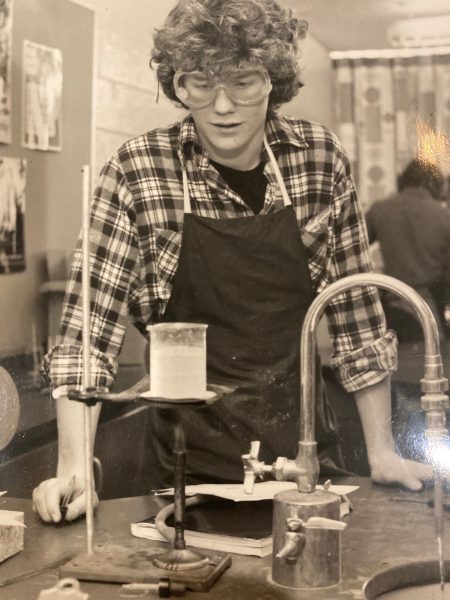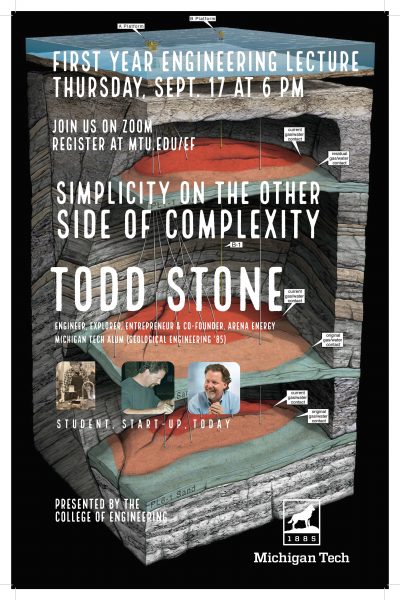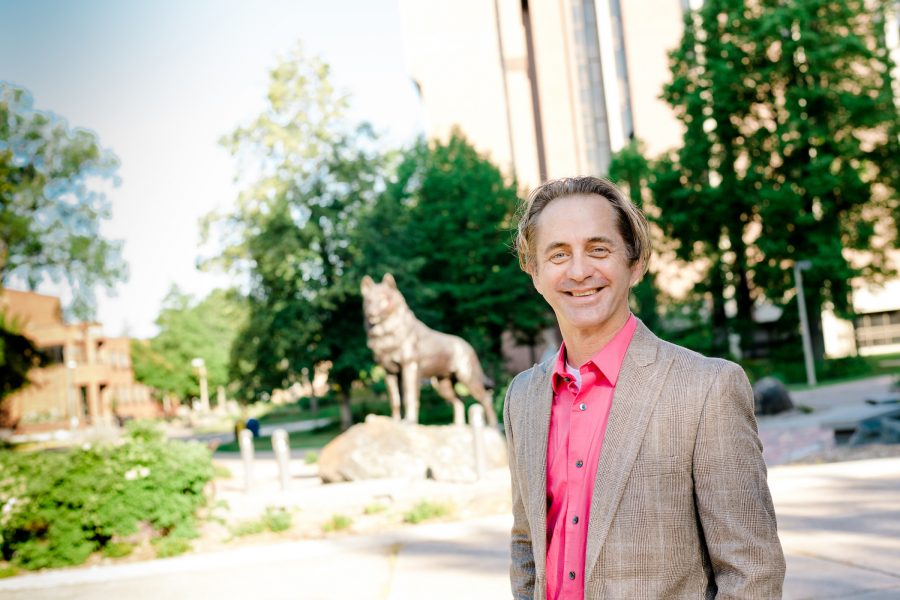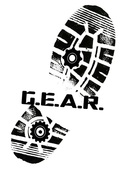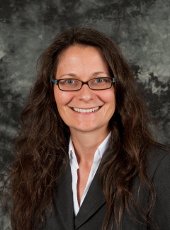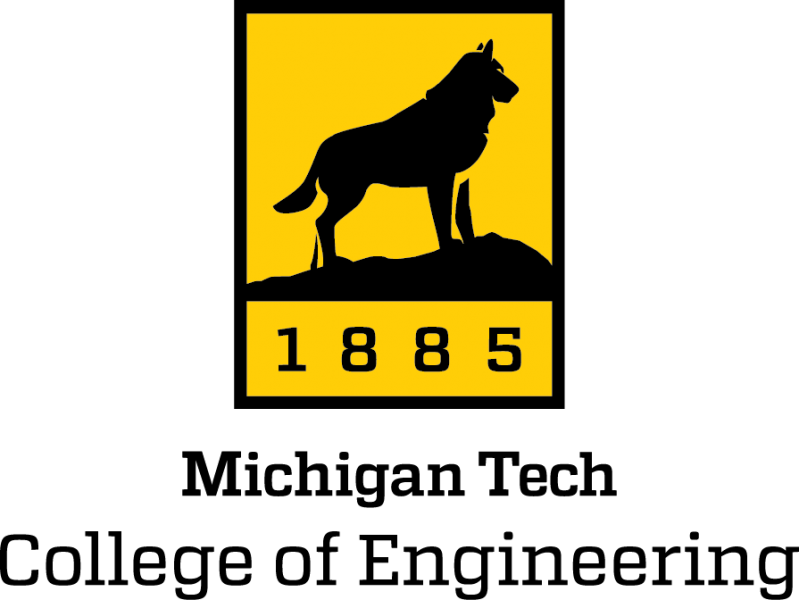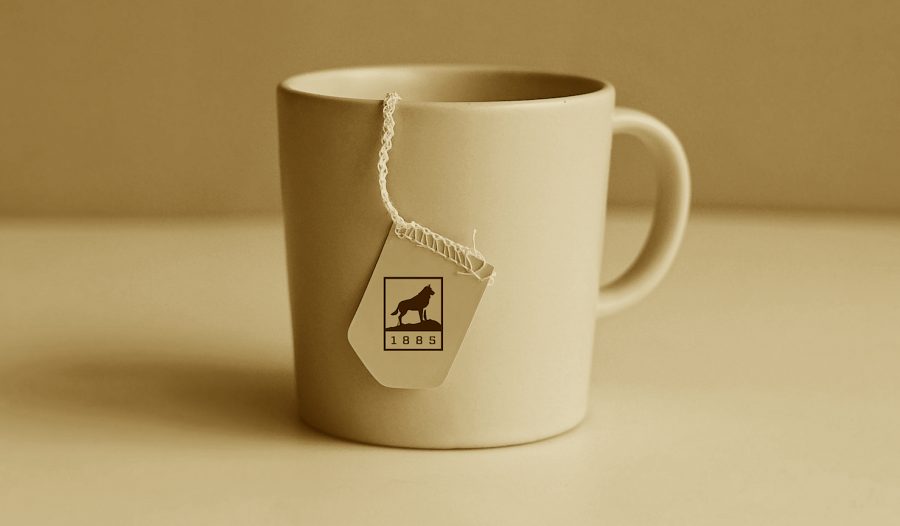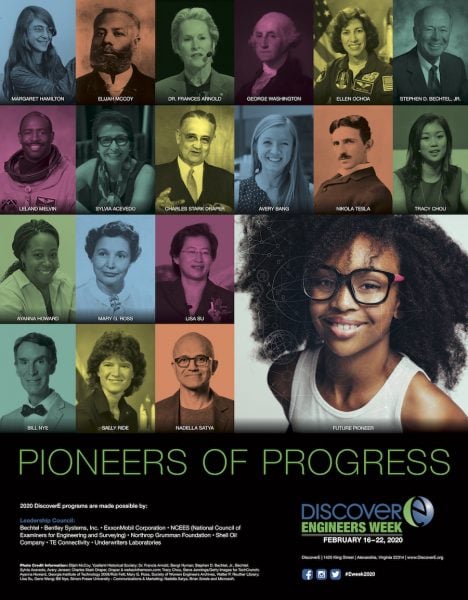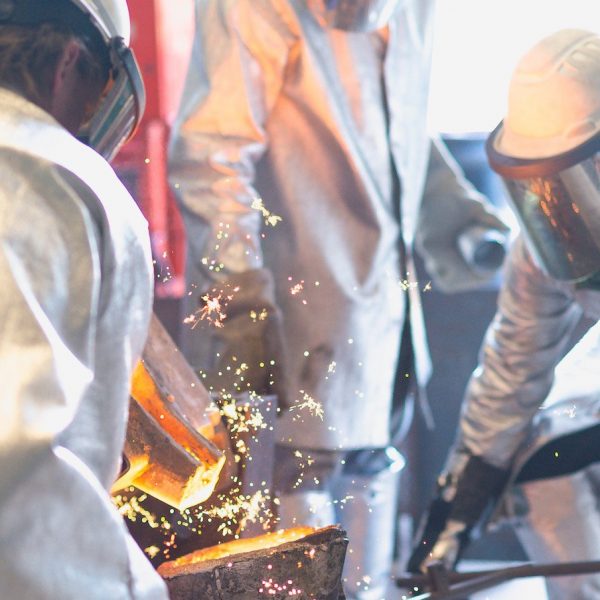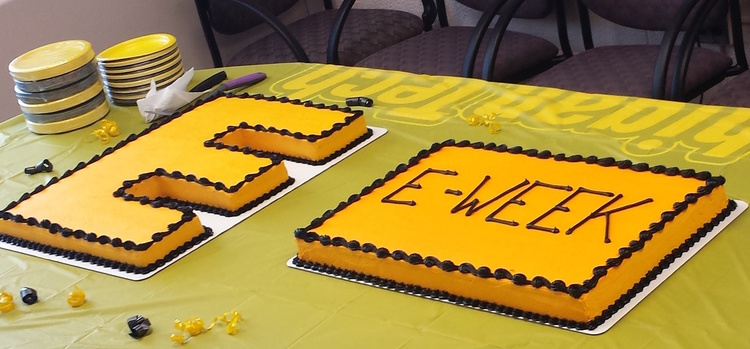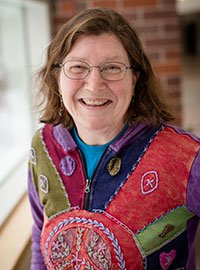
In the words of Michigan Tech alumna Erin Murdoch, now an automation engineer at Kendall Electric: “I can’t think of anyone more deserving.”
Gretchen Hein is the recipient of a major award from the world’s largest advocate and catalyst for change for women in engineering and technology. During ceremonies held online earlier this month on November 5, 2020, Hein was honored by the Society of Women Engineers (SWE), with the SWE Outstanding Advisor Award.
Hein is a senior lecturer in the Department of Manufacturing and Mechanical Engineering Technology and has served as the SWE Academic Advisor at Michigan Tech for the past 21 years. She teaches thermodynamics, fluid mechanics, and first-year engineering courses. She joined the faculty after earning her PhD in Environmental Engineering at Michigan Tech.
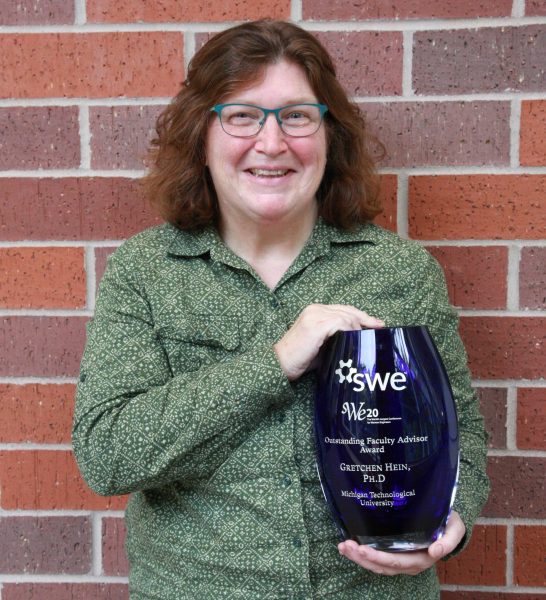
Dr. Hein, how did you first find engineering? What sparked your interest?
When I was 5 years old, I wanted to be a garbage collector because they let us ride through the neighborhood on the back of the truck. That’s also why I wanted to be a farmer—after haying, we were allowed to ride on top of the hay back to the barn. Later, when watching the Apollo Missions, I wanted to be an astronaut, riding on a spaceship. I said so at school, but it was the 1970’s. I was told by teachers and other adults, not my parents, that girls could not be astronauts. No woman had done that before. Being stubborn, I stuck with wanting to be an astronaut.
In high school, I took all the drafting classes my high school had to offer—mechanical and architectural drafting. I loved them. I wanted to be an architect. I read books on Buckminster Fuller, Frank Lloyd Wright and IM Pei. During my senior year, my dad, a mechanical engineer, said I should look into mechanical engineering, so I did. It sounded like fun.
I applied to General Motors Institute (now, Kettering University) and interviewed at Allison Gas Turbine Division. Working in a plant that made helicopter engines felt a little like “astronaut” and “architect” combined. I was sold. I began working there two weeks after my high school graduation. After earning my degree in mechanical engineering, I stayed on as a project engineer until I left for graduate school.
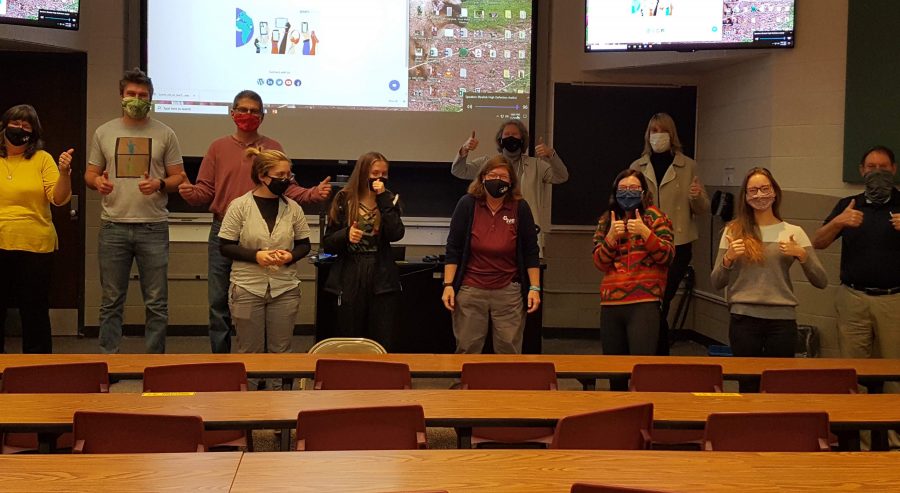
How did you happen to become a SWE advisor?
I was asked to be the SWE advisor when Dr. Sheryl Sorby became the first chair of the Department of Engineering Fundamentals, in 1999. I was new to teaching and unsure of the time commitment involved, so I talked with my colleague, MaryFran Desrochers, and we decided to be SWE co-advisors. We shared advising until 2005 when MaryFran left to spend more time with her family. She returned to campus when her girls were older and now works for Michigan Tech Career Services.
These days there are three SWE advisors: I am in the College of Engineering; MaryFran is our SWE liaison with Career Services, and Elizabeth Hoy at the Great Lakes Research Center helps us manage SWE finances. Our section counselor is alumna Britta Jost, New Product Introduction Manager at Caterpillar Inc. and member of Michigan Tech’s Presidential Council of Alumnae. I’ve always thought that the section was very strategic in choosing their advisors and counselor. We all work together well.
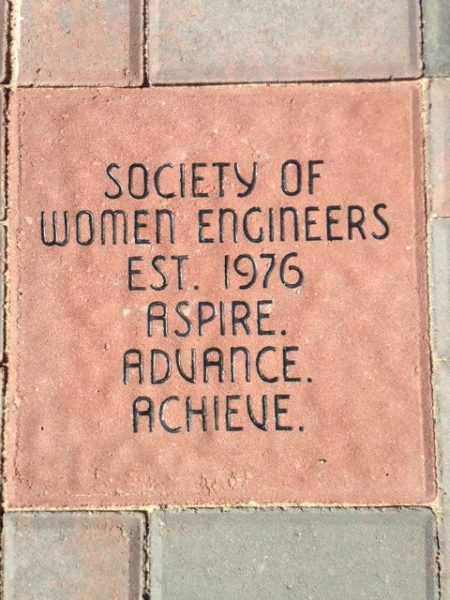
What do you know now, that you didn’t know then?
Over the past 20 years, my advising style has evolved and grown. At the beginning, I observed. As I learned what the section valued and where their interests were, I began to make suggestions. That’s how SWE’s annual Cider Pressing tradition began at my farm. Students wanted an event outside, and they wanted to meet my sheep, alpacas, ducks, chickens, dogs, cats, bunnies, rats, geckos and bees. Now, it’s the most popular social fall event where over 60 SWE members and friends come, press cider and meet the animals.
Michigan Tech members started to become active nationally in SWE. As I watched them grow, I felt that I needed to join them. I learned, through the students, that we can grow, expand our skills, and contribute, even by “standing in the background.”
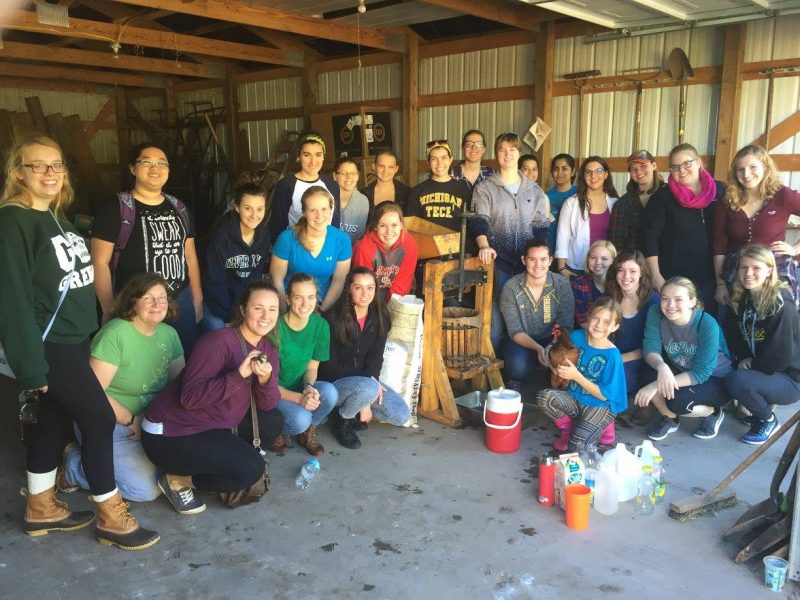
Have things changed for women engineers since then? If so, how?
One of the reasons I chose Michigan Tech for my doctoral studies was because of the friendliness of the faculty and students. It is still a strong characteristic of Tech. The number of women students, along with faculty, has increased over the past 20 years. There are more opportunities and different areas of study in engineering now. As time has passed, people who were less accepting of differences have left, and those who are interested in diversity and inclusion have become leaders.
The grit and independence of our SWE members haven’t changed. The students are still people who enjoy working, collaborating and learning together.
What is the best part about being an advisor?
The students—hands down! And this includes our graduates. For example, at WE19, I saw Anne Maher (a former SWE section president and member). It was like one of those sappy movies where two people run towards each other. I was so excited to see her and meet her mother. I get the same feeling in the fall when I see our students return to campus. I love to hear how their summer went, where they worked, what they did and what they will be doing at Tech. I always try to attend our fall Ice Cream Social, where we all meet new members. They bring so much excitement to the organization. It’s great to learn where they went to high school and why they came to Tech.
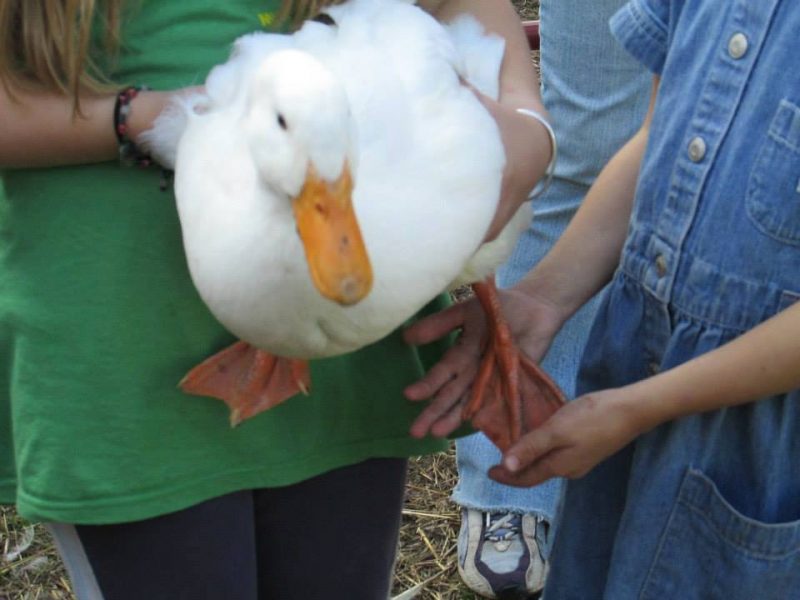
Your happiest time so far?
My happiest time is reconnecting. Every time I attend a SWE conference, I see so many of our graduates. Frequently, they recall “Duck Day” when I bring a duck into ENG3200, Thermodynamics/Fluid Mechanics. It’s a fun day because students get to pet, hold and see a duck. It’s a learning day because the arteries and veins in the ducks’ legs exchange heat to help regulate the duck’s body temperature.
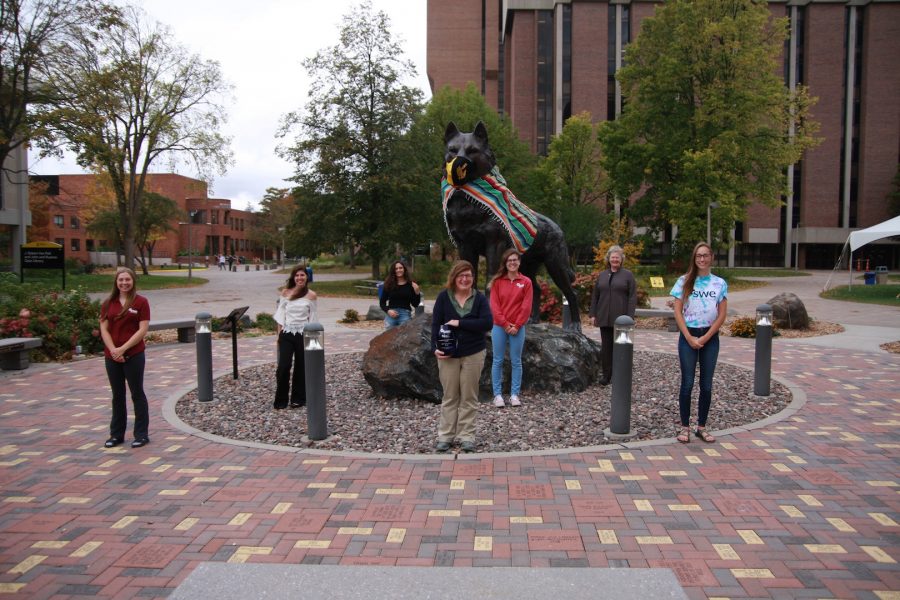
What motivates you?
The students make Michigan Tech. They motivate me. Like most people with doctorates, I had taken no classes on how to help others learn. My goal was to create a classroom environment that encouraged learning and discussion. At first, I did not succeed, but I really wanted to be the type of instructor where students came to class, enjoyed the class and learned—probably in that order. I kept talking with the Jackson Center for Teaching and Learning (CTL) at Michigan Tech. I was one of the first instructors to use online videos and blended learning. My students had told me that they were willing to learn material outside of class if we worked through more problems in class, so I learned how to make my course more efficient, to gain that extra time. I began to tell stories in class about my family, my industrial projects, TED talks—anything that would grab their interest and keep them laughing and thinking. I focused on how the course material could be applied to their careers; I invited former students to come talk about their careers in class. Last but not least, I related how much I struggled with Thermo when I studied it in college.
“Dr. Hein is supportive of her students and does her best to ensure each of us have all the tools and resources to flourish, both academically and professionally. She teaches valuable life skills for navigating the professional world as a female engineer, and serves as an exemplary role model.”
Your advice for future engineers?
For me, this question is personal. My son will be graduating in the spring with a degree in electrical engineering from Michigan Tech.
My advice is this: Find what you enjoy and do it, but realize that there will be times when the job is not exciting or that the challenges seem insurmountable. When visiting companies and during the interview process, see if you can visualize working with the people and in that environment. Each company has its own personality and so do you. You want these to mesh well. Figure out what type of community you’re happy in. It’s much easier to go to work when you like where you’re at. Use your contacts and resources.
I encourage everyone to keep learning and exploring, both at work and personally. The great thing is that sometimes growth in one area results in growth in another.
What do you want others to know about Michigan Tech’s SWE section?
The SWE section at Michigan Tech values outreach. And their commitment to SWE continues long after they graduate. Many are involved in their professional section and at the national level.

Members of the local SWE section are holding a thank you letter-writing campaign to show Dr. Hein appreciation for all of the hard work she has put in to help it succeed, and to congratulate her on her award. Send your letters to us here, at this address.
